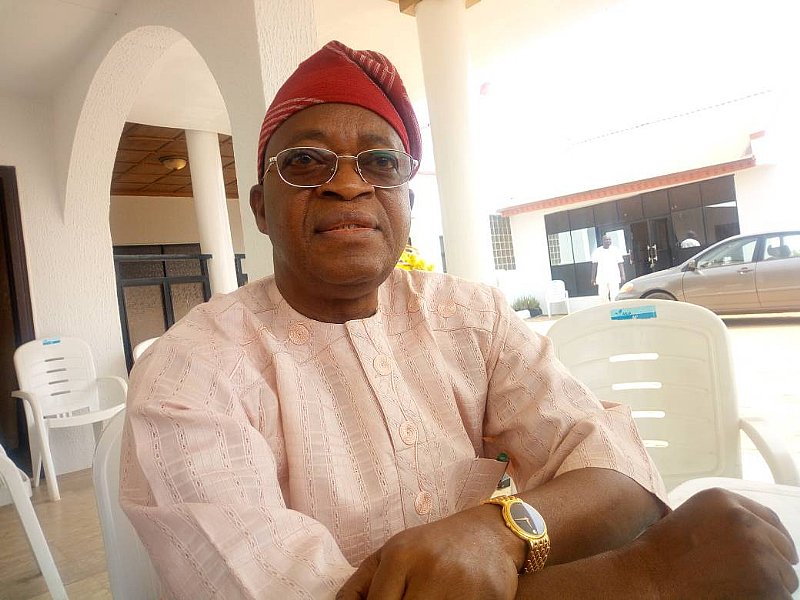The Federal High Court in Abuja on Friday dismissed a suit challenging the nomination of Governor Gboyega Oyetola as the candidate of the All Progressives Congress in the last governorship election in Osun State.
The suit was instituted by an aggrieved aspirant on the platform of the party, Kunle Adegoke, who alleged that the July 20, 2018 primary election, in which he participated alongside Oyetola and others, was marred by irregularities and non-compliance with the relevant laws and regulations.
Oyetola, had after emerging as the party’s candidate, gone ahead to win the September 22 and 27, 2018 governorship election in the state.
Dismissing the suit challenging Oyetola’s nomination as APC’s candidate for the election, Justice Inyang Ekwo ruled in his judgment on Friday that nothing was illegal or unconstitutional in the conduct of the primary by the APC as alleged by Adegoke.
The judge ruled, “On the whole, I find no illegal or unconstitutional act on the part of the 1st defendant in the conduct of the governorship primaries in Osun State that would warrant this court to intervene in what can be considered as its internal affairs either before or on July 20, 2018 when the said primary election was held.”
Adegoke, had on July 27, 2018, filed the suit marked, FHC/ABJ/ CS/804/2018, to challenge the emergence of Oyetola as APC’s governorship candidate.
The defendants in the suit were originally, the APC and the Independent National Electoral Commission, but Oyetola and his deputy, Benedict Alabi, were later joined as co-defendants.
Adegoke contended, among others in the suit, that the conduct of the APC’s primary election in Osun State violated the Constitution, the Electoral Act, 2010 and relevant provisions of the APC constitution, including the Regulation for the Conduct of Political Party Primaries of the Independent National Electoral Commission.
He said, in a supporting affidavit, that the “direct method” adopted by the party allowing all general members of the party to vote in the primary election “was a departure from the extant 2014 guidelines of the party”.
The plaintiff stated that contrary to the development in Osun State, “the indirect method of primary election was used in Edo State in 2016, Ondo State in 2016, Anambra State in 2017 and Ekiti State in May 2018”.
He added that the APC failed to notify him as an aspirant or the INEC in writing not later than 21 days to the date of the primaries, the details including the specific location and venue, date and time for the conduct of its nomination of candidate before holding same on the July 20, 2018.
He also stated that APC also failed to notify INEC in writing “the rescheduling of the purported primary election from Wednesday, the 18th day of July 2018 to Friday, the 20th day of July 2018.”
The plaintiff also alleged that the party failed to maintain “a proper and duly certified membership register for the purpose of conducting direct method of primaries”.
He also said officers of INEC “did not monitor the primary election” which held in 332 wards of Osun State on July 20, 2018, “as no reports of such elections at the ward level were prepared and submitted to the 2nd defendant (INEC)”.
He noted that he had, in an open letter, challenged the National Chairman of the party, Mr. Adams Oshiomhole, informing him that there was no membership register of the party by which the party could conduct a credible direct primary election.
But dismissing the suit, Justice Ekwo ruled that contrary to Adegoke’s contention, the National Working Committee of the party reserved the right to adopt either direct or indirect primary for the nomination of its candidate for the governorship election in the state.
He ruled that there was evidence showing that all governorship aspirants on the platform of the party were duly notified about the NWC’s decision to adopt direct primary ahead of the Osun State election.
The judge also ruled that Adegoke lacked the right to complain that INEC was not notified of the rescheduling of the primary within seven days.
He added that there was evidence that INEC officials monitored the primary election implying that the commission had validly waived the right of being given the seven-day notice about the rescheduling of the primary.
The judge also held that there was evidence showing that Adegoke attended the July 18, 2018 meeting where all aspirants were notified of the rescheduling of the primary to July 20.
He added that there was evidence showing that voter registers were displayed by the acting Chairman of the Electoral Committee for the APC’s primary, Senator Ovie Omo-Agege, and the plaintiff was invited to apply for copies.
The judge ruled, “It is my opinion upon considering the evidence in this case that the 1st defendant (APC) acted within its power and authority vested in it in the conduct of the governorship primaries in Osun State in the circumstances of the evidence in this case.
“Far be it that primary election of a party political party would be nullified simply for the fun of doing so or in sympathy with an aspirant whose aim is just to have the primaries anulled.
“The evidence to warrant the exercise of the power of nullification by the court must be compelling and perhaps overwhelming”.
The Punch

 News6 years ago
News6 years ago
 Featured6 years ago
Featured6 years ago
 Boss Picks6 years ago
Boss Picks6 years ago
 Headline6 years ago
Headline6 years ago
 Headline5 years ago
Headline5 years ago
 Headline6 years ago
Headline6 years ago
 Headline6 years ago
Headline6 years ago
 Headline6 years ago
Headline6 years ago














